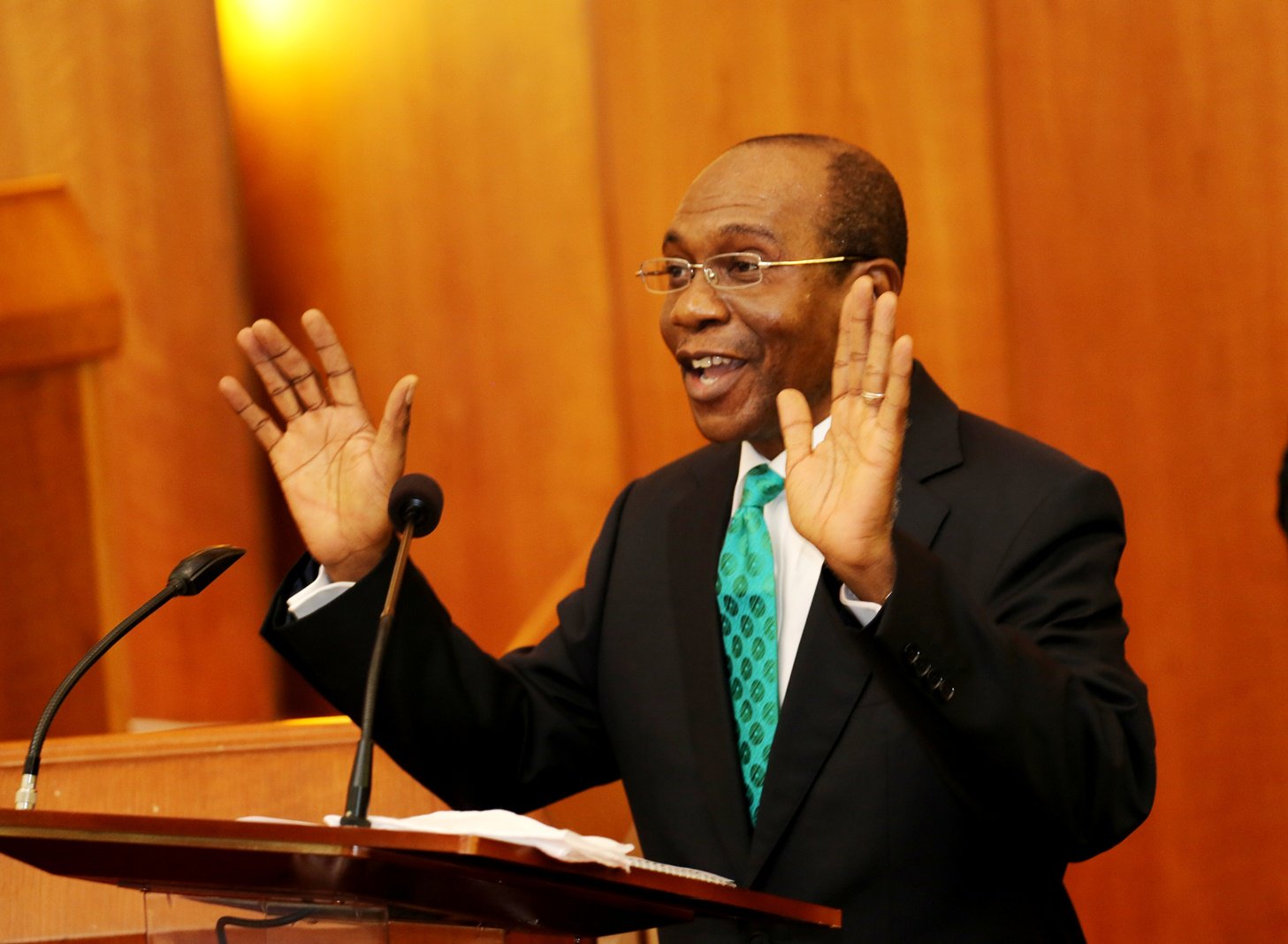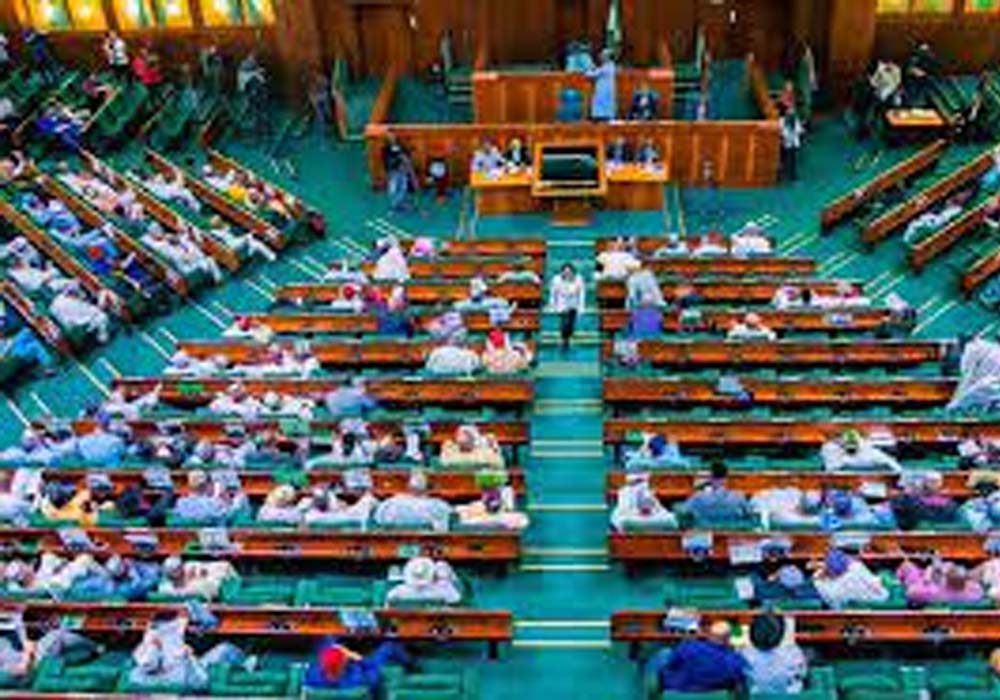Oil
FG Faces Growing Deficit Due To Oil Revenue Drop – CBN Report
In February 2023, the Federal Government experienced a significant increase of 22.8 percent in deficit spending compared to previous months which can be attributed to a substantial decline in oil revenue during that period.
According to the recently released Monthly Economic Report (MER) for February 2023 by the Central Bank of Nigeria (CBN), the deficit for the month amounted to N513.05 billion, bringing the total deficit for the first two months of 2023 to N931 billion.
The report highlights a significant decline in the oil sector, which experienced a 60 percent plunge from N774.15 billion in January to N308.07 billion in February.
Similarly, non-oil revenue also witnessed a 3.7 percent decline to N730.2 billion during the same period. As a consequence of these factors, the revenue accrued to the Federation Account in February experienced a substantial decline of 32.3 percent.
In addition, the Central Bank of Nigeria (CBN) reported that the expenditure side of fiscal operations further exacerbated the deficit position. Expenditure during the period experienced a 5.9 percent increase, amounting to N991.6 billion.
The CBN stated: “At N1.038 trillion, federation receipts were below the level in January by 32.3 per cent. Similarly, it was below the budget of N1.580 trillion by 34.3 per cent.
“The decline relative to January was attributed to a fall in collections from Petroleum Profit Tax and Royalties. Oil revenue, at N308.07 billion, was 60.2 per cent below receipts in the preceding month.
“The outcome was driven, largely, by the 60.5 per cent decrease in collections from Petroleum Profit Tax and Royalties. Similarly, at N730.21 billion, non-oil revenue, was below the level in the preceding month and the monthly target by 3.7 per cent and 7.4 per cent, respectively.
“The decrease was largely attributed to the 10.5 per cent decline in collections from corporate tax on account of the seasonality associated with its payments.
“At N478.57 billion, retained revenue of FGN was below the level in January and the proportionate budget by 7.7 per cent and 42.4 per cent, respectively.
“Provisional aggregate expenditure increased on account of the rise in both recurrent and capital expenditures. Consequently, the provisional aggregate expenditure of FGN at N991.62 billion rose by 5.9 per cent relative to the level in January and was 31.3 per cent below the monthly target.
“A breakdown of the expenditure reveals that recurrent expenditure, capital expenditure, and transfers accounted for 84.7 per cent, 9.5 per cent and 5.8 per cent of total expenditure, respectively.
“At N513.05 billion, the provisional fiscal deficit of the FGN rose by 22.8 per cent relative to the preceding month. “However, it was 16.2 per cent below the budget benchmark.”
Commenting, David Adonri, Vice Chairman, Highcap Srcurities, said: “Full year 2023 appropriation law is a deficit budget. Current administration must obey the law. They can review the budget and send a bill to amend the law.
“However, CBN report covers the period before assumption of office by this new administration. With the removal of fuel subsidy which constitutes a major expenditure item, this administration can cut the deficit if it follows the budget.”
Also, Prof Uche Uwaleke, President, Association of Capital Market Academics of Nigeria, said: “Deficit spending is made worse by rising fuel subsidies and huge debt service burden. This is the major justification for an end to fuel subsidy removal and a halt to contracting new loans that are not self-liquidating.
“This budget cannot attain fiscal consolidation until the challenges posed by fuel subsidy and high debt service obligations are dealt with.”
Commenting also , the Managing Director/CEO, APT Securities & Funds Limited, Mallam Garba Kurfi, said: “It is not a surprise to have deficit as the production of crude oil fall below one million barrel per day.
“The Government should, with immediate effect address the official bunkering of crude oil because from 1.5 million barrel per day, MBPD, reduced to less than one million is a matter that requires urgent attention and need to be given serious attention. This will give immediate relief while looking into other leakages of revenue for blocking.”
Head of Research and Investment at Fidelity Securities Limited, Victor Chiazor, said: “Deficit financing is not really an issue, especially when this financing goes into the production and manufacturing arm of your economy as against deficit financing of consumption.
“We are of the opinion that the deficit position reported by the CBN will significantly drop on the back of the recent subsidy removal by the current administration. The next phase will be to now block other leakages and find smart ways to improve government revenues.
“However, growing government revenues will not be immediate hence we expect this deficit spending to continue in the medium to short term.”
The Managing Director, Sofunix Investment and Communications Limited, Sola Oni, said: “The new administration should reduce the huge cost of governance, channel the anticipated gains from fuel subsidy to provide infrastructure and other indices of enabling environment to enhance productivity.
“Debt reschedule is not new to Nigeria and a lot can be realized from taxation by deploying technology. In 1994, Sweden was nearly bankrupt but by applying spending cut and creative tax generation , the country returned to balanced budget.”
Oil
NNPC Targets 60% Methane Emission Reduction By 2031
The Nigerian National Petroleum Company Limited (NNPC) has unveiled a bold strategy to reduce methane emissions in the oil and gas sector by 60% by 2031, with an ultimate goal of achieving net-zero emissions by 2060.
This announcement reinforces Nigeria’s leadership role under the Global Methane Pledge initiative and its commitment to tackling climate change.
The Group Chief Executive Officer of NNPC, Mele Kyari, disclosed these plans during a meeting on Thursday with Robert Leahman, the U.S. State Department’s Global Methane Program Manager, and a delegation from Deloitte.
READ MORE: Atiku Gloats Over AUN’s Achievements Ahead Of 20th Anniversary
The discussions, held at the NNPC Towers in Abuja, focused on collaborative efforts to reduce methane emissions through innovative and sustainable practices.
“Reducing methane emissions is not just an environmental necessity but also a strategic imperative for Nigeria’s energy transition. We are leveraging partnerships to adopt global best practices and innovative solutions,” Kyari stated.
Key among these efforts is a pilot project in the Niger Delta, aimed at establishing emissions baselines, mitigating methane leaks, and promoting sustainable operations across Nigeria’s energy sector.
The project, a partnership between NNPC, Deloitte, and the U.S. Bureau of Energy Resources, will utilize data-driven methodologies to pinpoint and address methane hotspots.
Robert Leahman commended Nigeria’s proactive stance, describing it as a benchmark for other nations on the continent.
“Nigeria’s leadership under the Global Methane Pledge sets a standard for the continent. These initiatives will not only help reduce emissions but also drive sustainable development in the energy sector,” he said.
Kyari highlighted the broader benefits of addressing methane emissions, noting its significance for both environmental protection and economic efficiency.
“This collaboration is a game-changer. By addressing methane leaks, we’re reducing waste, saving costs, and protecting the environment. It’s a win-win for our economy and the planet,” he added.
Oil
FG Introduces New Incentives To Revitalize Nigeria’s Oil & Gas Industry
In a strategic move to revitalize Nigeria’s oil and gas sector, the Federal Government has unveiled two key fiscal incentives aimed at attracting investment and enhancing energy security.
The announcement was made by Mr. Wale Edun, the Minister of Finance and Coordinating Minister of the Economy on Wednesday.
The first initiative, the Value Added Tax (VAT) Modification Order 2024, introduces critical exemptions for essential energy products and infrastructure, including Diesel, Feed Gas, Liquefied Petroleum Gas (LPG), Compressed Natural Gas (CNG), Electric Vehicles, Liquefied Natural Gas (LNG) infrastructure, and Clean Cooking Equipment.
Read Also: Atiku Calls For Rotational Presidency Across Nigeria’s Geopolitical Zones
These exemptions are designed to reduce living costs for Nigerians, promote energy security, and accelerate the transition to cleaner energy alternatives.
The second initiative, the Notice of Tax Incentives for Deep Offshore Oil & Gas Production, offers new tax relief options for deep offshore exploration projects.
This measure aims to position Nigeria’s deep offshore basin as a premier destination for international oil and gas investments, boosting the country’s appeal to foreign investors.
These reforms are part of a broader set of policy initiatives, known as Policy Directives 40-42, endorsed by President Bola Ahmed Tinubu.
The directives reflect the administration’s commitment to fostering sustainable development in the energy sector and enhancing Nigeria’s competitive edge in the global oil and gas market.
Business
Tinubu set to approve ExxonMobil-Seplat oil deal, expands CNG bus initiative

By Yemie Adeoye
NIGERIA’s President Bola Tinubu has announced that the protracted ExxonMobil-Seplat upstream oil divestment will be formally approved by the Minister of petroleum within a matter of days, just as he announced his government’s intention to expand the Compress natural Gas, CNG buses initiative.
The President who stated this during his Independence day nationwide broadcast stated that the move is in line with his administration’s commitment to free enterprise, free entry and free exit in investments which is the hallmark of his administration investment policy.
“Fellow compatriots, our administration is committed to free enterprise, free entry, and free exit in investments while maintaining the sanctity and efficacy of our regulatory processes. This principle guides the divestment transactions in our upstream petroleum sector, where we are committed to changing the fortune positively. As such, the ExxonMobil Seplat divestment will receive ministerial approval in a matter of days, having been concluded by the regulator, NUPRC, in line with the Petroleum Industry Act, PIA. This was done in the same manner as other qualified divestments approved in the sector.”
The President also seized the opportunity to plead with Nigerians to be patient with his administration’s reform policies. “As your President, I assure you that we are committed to finding sustainable solutions to alleviate the suffering of our citizens. Once again, I plead for your patience as the reforms we are implementing show positive signs, and we are beginning to see light at the end of the tunnel”.
“Our energy transition programme is on course. We are expanding the adoption of the Presidential Initiative on Compressed Natural Gas for mass transit with private sector players. The Federal Government is ready to assist the thirty-six States and FCT in acquiring CNG buses for cheaper public transportation.
Fellow Nigerians, while we are working to stabilise the economy and secure the country, we also seek to foster national unity and build social harmony and cohesion. Our economy can only thrive when there is peace”. he enthused.






















